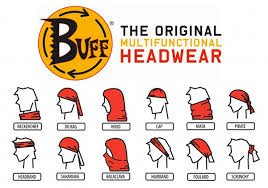buff
英 [bʌf]
美 [bʌf]
- n. 浅黄色;软皮;爱好者;[俚] 健康的身体
- (Buff)人名;[德]布夫;[英]巴夫
- vt. 有软皮摩擦;缓冲;擦亮,抛光某物
使用频率:

记忆方法
将“buff”与“buff up”这个短语联系起来,想象有人通过锻炼或涂抹某种东西(比如一种“buff”)让自己变得更加强壮或光彩。这种方法通过将单词与一个动作或变化过程相联系,帮助记忆其含义,即“增强”或“提高”的意思。
以上内容由AI生成, 仅供参考和借鉴
中文词源
buff 爱好者,浅黄褐色
来自buffalo leather, 水牛皮,黄褐色。爱好者义来自美国历史上1820年纽约志愿者救火队的制服颜色,这群志愿者在当时享有非常大的声誉。
英语词源
- buff
-
buff: [16] Buff originally meant ‘buffalo’; it was presumably an alteration of the French word buffe ‘buffalo’. That sense had died out by the early 18th century, but since then the word has undergone a bizarre series of semantic changes. First, it came to mean ‘leather’, originally from buffalo hides, but later from ox hides. This was commonly used in the 16th and 17th centuries for making military uniforms, so be in buff came to mean ‘be in the army’.
Then in the 17th century the associations of ‘hide’ and ‘skin’ led to the expression in the buff ‘naked’. The colour of buff leather, a sort of dull yellowish-brown, led to the word’s adoption in the 18th century as a colour term. In the 19th century, soft buff or suede leather was used for the small pads or wheels used by silversmiths, watchmakers, etc for polishing: hence the verb buff ‘polish’.
And finally, in the 1820s New York City volunteer firemen were known as ‘buffs’, from the colour of their uniforms; thus anyone who was a volunteer or enthusiastic for something became known as a buff (as in ‘film buff’). The buff of blind-man’s buff is a different word. It meant ‘blow, punch’, and was borrowed in the 15th century from Old French buffe, source also of English buffet ‘blow’ [13].
The term blind-man’s buff is first recorded around 1600, some what later than its now obsolete synonym hoodman blind.
=> buffalo, buffet - buff (n.)
- 1570s, buffe leather "leather made of buffalo hide," from Middle French buffle "buffalo" (15c., via Italian, from Latin bufalus; see buffalo (n.)).
The color term comes from the hue of buffalo hides (later ox hides). Association of "hide" and "skin" led c. 1600 to in the buff. Buff-colored uniforms of New York City volunteer firefighters since 1820s led to meaning "enthusiast" (1903).The Buffs are men and boys whose love of fires, fire-fighting and firemen is a predominant characteristic. [N.Y. "Sun," Feb. 4, 1903]
- buff (adj.)
- "well-built, hunky," 1980s, from buff (v.) "polish, make attractive."
- buff (v.)
- "to polish, make attractive," 1885, in reference to the treatment of buff leather or else to the use of buff cloth in polishing metals, from buff (n.). Related: Buffed; buffing.
权威例句
- 1. He took a largish buff envelope from his pocket.
- 他从口袋里掏出一个相当大的米色信封。
- 2. Judge Lanier is a real film buff.
- 拉尼尔法官是个真正的影迷。
- 3. She was wearing a buff uniform.
- 她穿着一身米色制服.
- 4. Jack is a jazz buff.
- 杰克是爵士音乐迷.
- 5. Buff up the paintwork with a soft cloth.
- 用块柔软的布把漆面擦亮.
